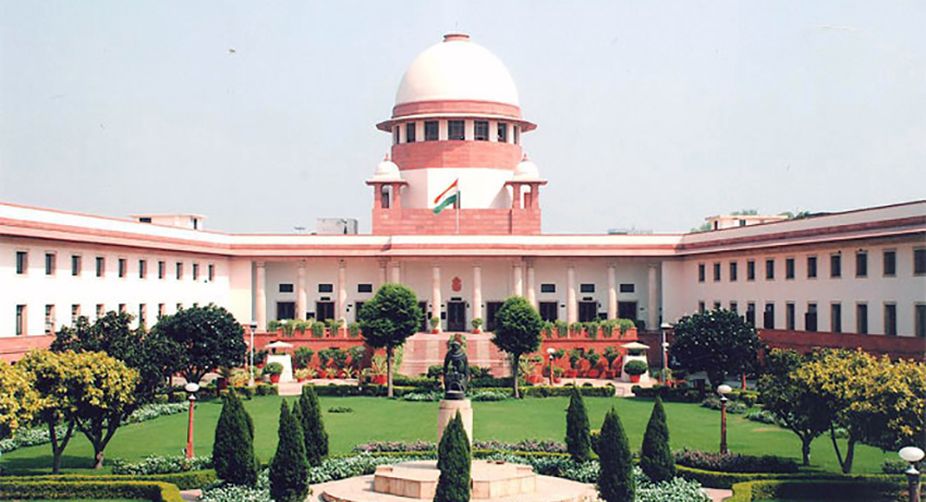The Supreme Court on Wednesday suggested that the government could put in place a law to deal with issues including triple talaq instead of waiting for it to decide on the matter judicially, and wondered whether it is possible to give the Muslim woman the option to oppose instant divorce.
"We may or may not (decide the issue), but you do," said the constitution bench headed by Chief Justice Jagdish Singh Khehar to Attorney General Mukul Rohatgi as the latter urged the court to step in a situation where there is no legislation.
Advertisement
Noting the government's insistence that the court should first rule against instant triple talaq and then it would bring a law, the bench asked why the government was not making a law instead of asking the court to decide the matter.
Besides the Chief Justice, the other judges on the bench are Justice Kurian Joseph, Justice Rohinton Fali Nariman, Justice Uday Umesh Lalit and Justice S. Abdul Nazeer
As the court made it clear that the government could not shun its responsibility, Attorney General Mukul Rohatgi said, "I will do what I have to do. The question is what you (court) will do."
Earlier in the morning, the bench asked the All India Muslim Personal Law Board if it was possible to give the woman the option, before she gives her consent to nikaah, that the marriage she was entering into would not be dissolved through instant triple talaq.
The court suggested whether a clause can be added on the Nikaah Nama to say that the marriage can't be dissolved by the husband by pronouncing instant triple talaq.
As Rohatgi referred to the Vishakha guidelines that were framed by the top court to protect women at the workplace in the absence of any law, Justice Kurian said that it was in the domain of a statute and not the constitution.
In an obvious comparison to the steps taken to reform Hindu practices, when the Attorney General referred to the abolition of Sati, infanticide and Devadasi system, Justice Kurian said that all those (abolitions) were legislatively decided.
"Did the court do it? No, legislation got rid of it," Chief Justice Khehar observed.
The court described the issue before it as something not between the majority and the minority communities but an intra-minority issue of tussle between Muslim men and women – which he said was a tussle between haves (men) and have-nots (women).
Describing instant triple talaq as a "pernicious practice", the AG urged the court to "step in as a guardian of the fundamental rights".
He further argued that even under Article 25 of the Constitution which guarantees right to propagate and practice religion, the core religious values were subject to part III of the Constitution spelling out the fundamental rights.
Recalling the horror and trauma at the time of Partition, AG said that Article 25 was incorporated in the Constitution to assure everyone that the core values of their religious beliefs would not be touched by the State.
Senior counsel Indira Jaising, appearing for one of the petitioners challenging the constitutional validity of triple talaq, in her rejoinder arguments said that the court was looking at the issue in the context of 67 years when fundamental rights came into force and not 1,400 years since the birth of Islam.
Telling the court that the impact of the divorce was civil involving her maintenance and shelter, Jaising said the court should address the social consequences of divorce as women lose everything.
Citing equality before law and equal protection of law under Article 14, Jaising said the State is obliged not to recognise any discrimination between men and women on the grounds of religious beliefs and practices.
The bench in the morning asked the All India Muslim Personal Law Board if it was possible to give the woman the option that the marriage would not be dissolved through triple talaq and whether their advisory would be followed by the Qazis on the ground.
"You can incorporate this option in the Nikaah Nama before she gives consent to nikaah to say no to triple talaq," Chief Justice Khehar asked the AIMPLB.
Responding to the suggestion, Senior counsel Yusuf Hatim Muchchala said the advisory of the AIMPLB is not binding on the Qazis to follow.
However, Muchchala, who is also a member of the Executive Committee of the AIMPLB, referred to a resolution passed by the AIMPLB conclave at Lucknow wherein the Board asked the community to boycott the men who take recourse to instant triple talaq.
The conclave took place on April 14, 2017.
He told the bench that they would consider the suggestion in all humility and look at it. The suggestion to AIMPLB by the court came in the course of the hearing of a batch of petitions challenging the constitutional validity of triple talaq.
AIMPLB, has in the course of its submissions while saying that triple talaq was permissible, described it as a "sin" and "undesirable". The AIMPLB has said that the community needed time to change and reform itself on its own without any outside interference or dictate.











